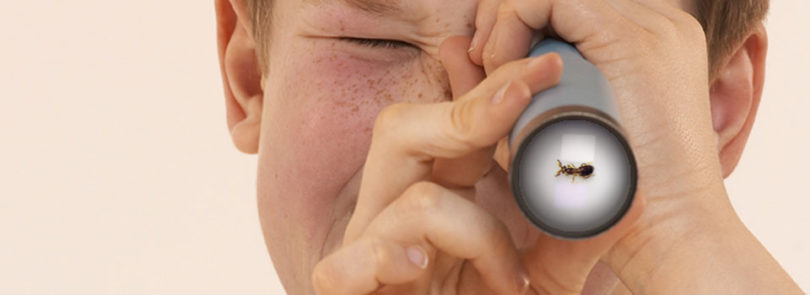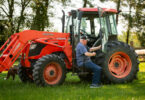Wasp wrangling may sound like risky business, especially for children. But it’s actually quite safe, according to UGA entomologist Robert Matthews, as long as the critters are WOWBugsTM – wasps so tiny that their stingers can’t penetrate human skin. These insects, said Matthews, are an excellent vehicle for teaching science.
In collaboration with UGA science education colleagues and about 100 Georgia middle school science teachers, Matthews has developed 20 different classroom activities using WOWBugs.
“The first lesson is handling the organism,” he said.
Students practice sweeping the bugs across their desks with paint brushes. In a second lesson, called WOWBug Racetrack, students learn how to collect and analyze data. They record the time it takes for the flightless wasps to scuttle from one end of the track to the other.
Matthews and his colleagues have studied this wasp’s biology for more than 30 years, but he first recognized its potential as a teaching tool when he was in graduate school.
“They literally found me,” he said of the discovery that WOWBugs had infested his thesis experiment involving a bee. From this fiasco, Matthews learned of the wasp’s hardiness and short (24-day) life cycle, which makes it a convenient animal to study.
He named these bugs WOWBugs because of the enthusiasm they generated.
“They were originally called Fast Wasps in allusion to their rapid life cycle,” he said. “Unfortunately, the name did not have good marketing appeal as it conjured up a quick sting!”
Not much bigger than a flea, the parasitic wasp (Melittobia digitata) preys on a wide variety of solitary bees and wasps, including mud daubers – large, black wasps that make mud nests. And this tiny bug has some fascinating characteristics – the male, for example “is most un-insect looking,” said Matthews. “He’s blind, his antler-like antennae are grotesquely modified and he’s got little stumps for wings.” This compromised chap’s pheromones let him do his procreative duty, however, as long as he can steer clear of other males who will try to kill him.
In any case, teachers are enthusiastic about using WOWBugs. Brenda Hunt, of North Habersham Middle School in Clarkesville, Ga., teaches her students how to collect wild specimens by scraping mud dauber nests off the sides of buildings. “I also tell them,” she said, “not to use their mothers’ spatulas without permission.”
“Fifteen years ago, if you had said WOWBugs were going to go national or international in the next decade or so, I would have said you’re crazy,” Matthews said. “But it’s becoming another model organism for classroom use at all levels.”






